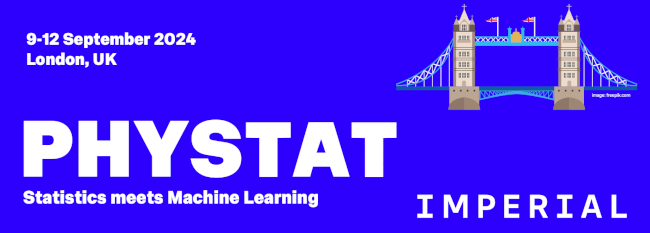Speakers
Sofia Palacios Schweitzer
(Heidelberg)
Tilman Plehn
(Heidelberg University)
Description
Many physics analyses at the LHC rely on algorithms to remove detector effect, commonly known as unfolding. Whereas classical methods only work with binned, one-dimensional data, Machine Learning promises to overcome both problems. Using a generative unfolding pipeline, we show how it can be build into an existing LHC analysis, designed to measure the top mass. We discuss the model-dependence of our algorithm, i.e. the bias of our measurement towards the top mass used in simulation and propose a method to reliably achieve unbiased results.
Author
Sofia Palacios Schweitzer
(Heidelberg)
Co-author
Tilman Plehn
(Heidelberg University)
